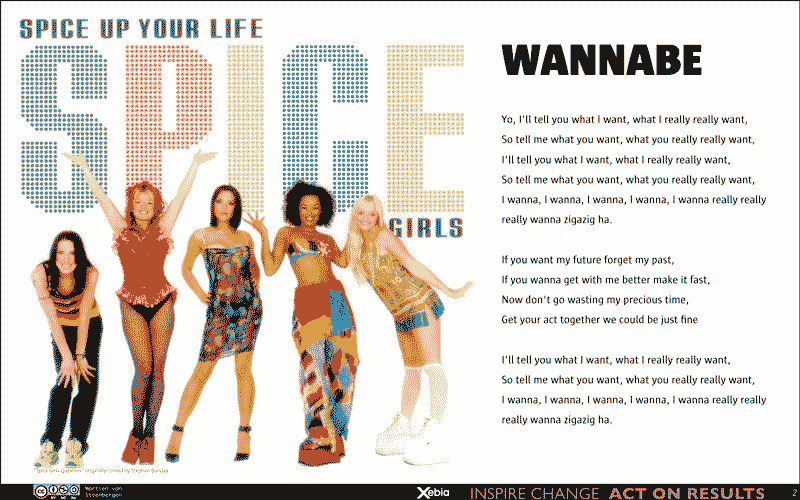Difference between revisions of "Spice girls question"
m ({{!}}) |
m ({{p|real options}}) |
||
| Line 7: | Line 7: | ||
|so=Ask the Product Owner, “Tell me what you want, what you really really want.” | |so=Ask the Product Owner, “Tell me what you want, what you really really want.” | ||
|image=Spice-Girls-Question.png{{!}}link=http://pearllanguage.org/images/b/be/Spice_Girls_Question.pdf | |image=Spice-Girls-Question.png{{!}}link=http://pearllanguage.org/images/b/be/Spice_Girls_Question.pdf | ||
|wish full=Once something is flowing across the Kanban board we don't ever want it to be discarded and waste scarce resources and capacity. Deferring commitment to the optimal exercise point maximizes your return on investment. | |wish full=Once something is flowing across the Kanban board we don't ever want it to be discarded and waste scarce resources and capacity. Deferring commitment to the [[optimal exercise point]] maximizes your return on investment. | ||
|background=Kanban really helps focus people on what we call in the community the “{{p|spice girls question}}”. When you are doing the queue replenishment for a Kanban system, you might say which two things do you want next. | |background=Kanban really helps focus people on what we call in the community the “{{p|spice girls question}}”. When you are doing the queue replenishment for a Kanban system, you might say which two things do you want next. | ||
Management consultant Stephen Bungay would say you have to “'''tell me what you want, what you really really want'''” and once you committed on that you shouldn't change your mind. | Management consultant Stephen Bungay would say you have to “'''tell me what you want, what you really really want'''” and once you committed on that you shouldn't change your mind. | ||
|therefore full=Ask the {{p|product owner}}, “Tell me what you want, what you really really want.” | |therefore full=Ask the {{p|product owner}}, “Tell me what you want, what you really really want.”, using {{p|real options}}. Pull only those items and secure that you {{p|start what you finish and finish what you start}}. | ||
}} | }} | ||
==Spice Girls » WANNABE== | ==Spice Girls » WANNABE== | ||
Revision as of 08:13, 11 November 2013
…options have value because the future is uncertain, so you have way more options than your capacity can ever supply.
✣ ✣ ✣
Once something is flowing across the Kanban board we don't ever want it to be discarded and waste scarce resources and capacity. Deferring commitment to the optimal exercise point maximizes your return on investment.
Kanban really helps focus people on what we call in the community the “spice girls question”. When you are doing the queue replenishment for a Kanban system, you might say which two things do you want next.
Management consultant Stephen Bungay would say you have to “tell me what you want, what you really really want” and once you committed on that you shouldn't change your mind.
Therefore:
Ask the product owner, “Tell me what you want, what you really really want.”, using real options. Pull only those items and secure that you start what you finish and finish what you start.
✣ ✣ ✣
✣ ✣ ✣
Spice Girls » WANNABE
Yo, I'll tell you what I want, what I really really want, So tell me what you want, what you really really want, I'll tell you what I want, what I really really want, So tell me what you want, what you really really want, I wanna, I wanna, I wanna, I wanna, I wanna really really really wanna zigazig ha. If you want my future forget my past, If you wanna get with me better make it fast, Now don't go wasting my precious time, Get your act together we could be just fine I'll tell you what I want, what I really really want, So tell me what you want, what you really really want, I wanna, I wanna, I wanna, I wanna, I wanna really really really wanna zigazig ha.
Sources
- InfoQ » Interview with David J. Anderson at Lean Kanban 2013 Conference
- “Spice Girls Question” originally coined by Stephen Bungay
